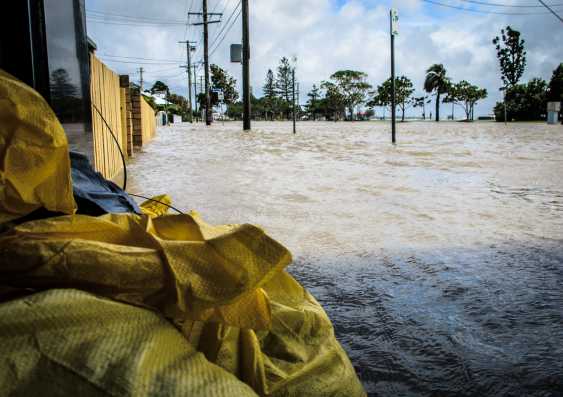Flooding across NSW and Queensland: Experts available for comment
UNSW experts available to comment on flooding and record rain across NSW and Queensland.
UNSW experts available to comment on flooding and record rain across NSW and Queensland.

Flooding and record levels of rain have inundated parts of Queensland and northern NSW, Sydney’s summer becoming one of the wettest in decades.
These experts from UNSW Science, Engineering and Medicine & Health are available for comment on the floods.
Dr Nina Ridder is a research associate in the UNSW Climate Change Research Centre. Dr Ridder can comment on the general atmospheric conditions during a La Niña, and how it is related to water vapour transport over Australia and soil moisture saturation leading to flood events, which would not occur if the same amount of rain fell on unsaturated grounds. Contact: n.ridder@unsw.edu.au, 0434 082 325.
“With each degree increase in the atmospheric temperatures,” said Dr Ridder, “air can hold roughly 7% more water vapour that is eventually available to fall as rain to the surface. This means that under future conditions which are likely to be higher than what we have seen in the past, La Niña events are likely to bring more extreme rainfall to Australia. Over the past decades we have already seen an increase in the number and intensity of extreme rainfall events and we are expecting this trend to continue into the future.”
Dr Agus Santoso is a senior research associate at UNSW Science’s Climate Change Research Centre. Dr Santoso can discuss why La Niña happens, how it impacts on climate, e.g., this recent wet condition; and what the future holds for La Nina and El Nino. Contact: Jesse Hawley, jesse.hawley@unsw.edu.au, 0422 537 392.
Professor Stuart Khan from the UNSW School of Civil & Environmental Engineering can comment on water quality impacts and challenges being faced by water treatment plants to keep producing safe drinking water. Contact: s.khan@unsw.edu.au, 0414 398 293, (02) 93 855 070.
Professor Ashish Sharma is available to comment on the flooding event in QLD. Professor Ashish Sharma is an engineering hydrologist whose research is focussed on the impact of climate change and variability on hydrological practice, developing hydrological models, design flood estimation and water resources management. Contact: Cecilia Duong, cecilia.duong@unsw.edu.au.
Dr Amy Peden is a researcher and lecturer in Injury Prevention, Epidemiology and Control within the School of Public Health and Community Medicine. Dr Peden is available to discuss drowning prevention in relation to flooding. Contact: a.peden@unsw.edu.au, 0432 644 318.
Dr Boris Beranger is a lecturer and a member of the UNSW Data Science Hub (uDASH) researching the statistical aspects of modelling extremes events. In collaboration with Prof Scott Sisson (UNSW) Dr Beranger was recently awarded an ARC Discovery Project to develop new models for modelling real-world extremes. He is interested in spatial extremes events and application to environmental extremes. Regarding the current flooding events, he can answer questions about return levels and return periods (e.g. 1 in a 100-year event etc.) and the uncertainty that comes with those numbers. Contact: Boris Beranger, b.beranger@unsw.edu.au, or Jesse Hawley, jesse.hawley@unsw.edu.au, 0422 537 392.
Professor Michael Sherris from the School of Risk and Actuarial Studies, UNSW Business School can comment on insurance for floods, the risk of catastrophes, and how it impacts premiums. Contact m.sherris@unnsw.edu.au.